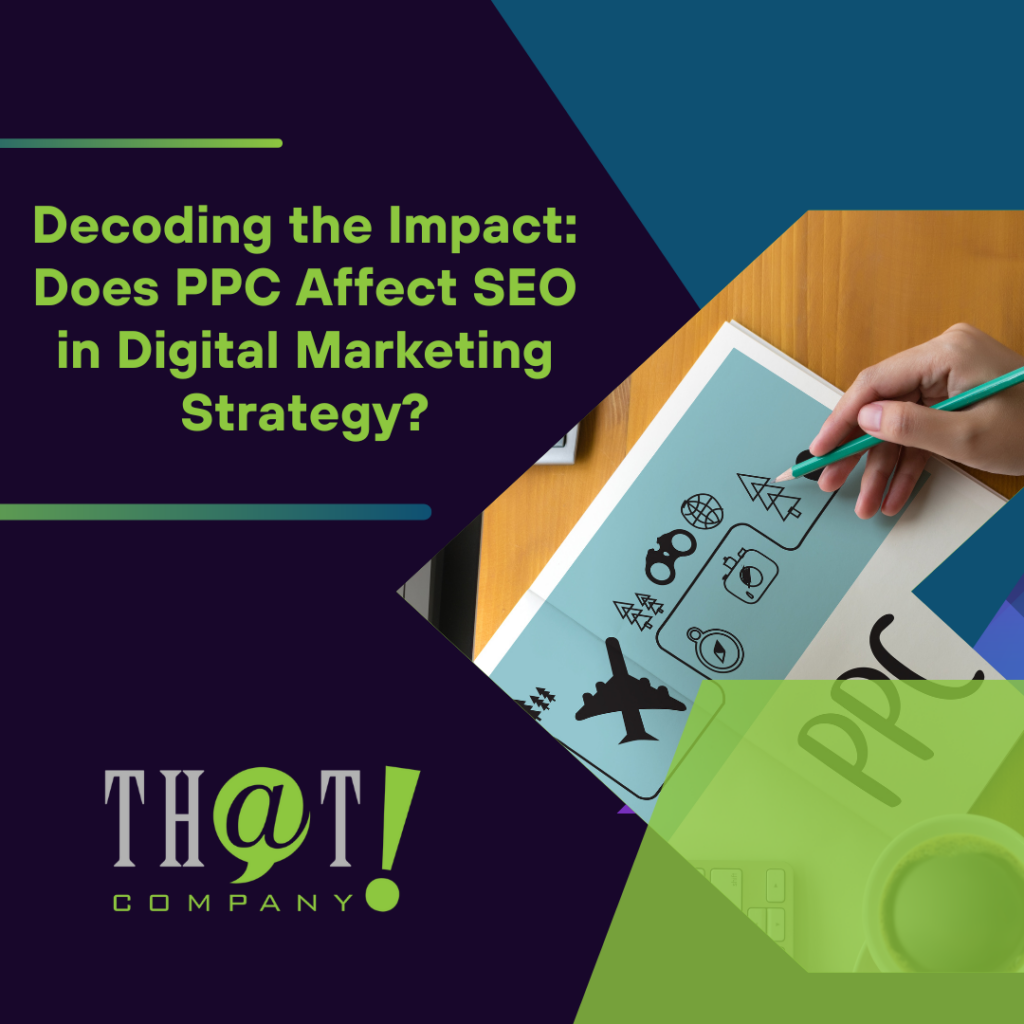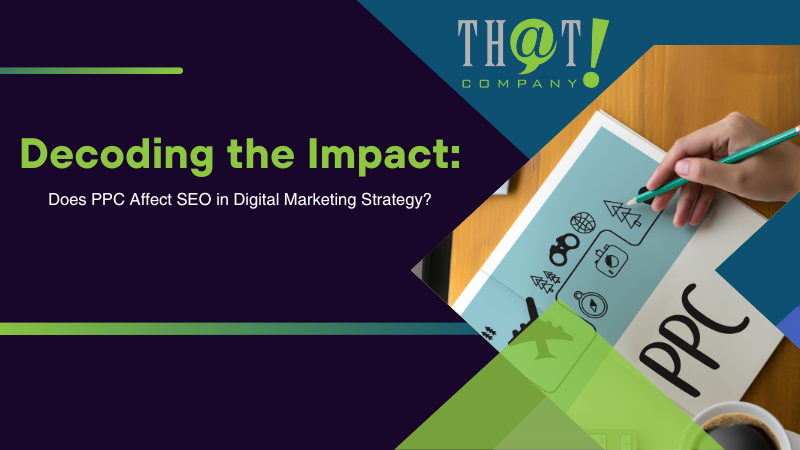
Are you wondering if PPC campaigns have an effect on your SEO efforts? The major question on many marketers’ minds is: does PPC affect SEO? By investing in pay-per-click (PPC) advertising, can it impact search engine optimization (SEO) results? This article dives into the key ways these two strategies intersect, exploring how PPC might indirectly benefit your organic search endeavors without directly influencing your search engine rankings. Expect to uncover the synergies between PPC and SEO and how you can leverage them for a stronger digital marketing strategy.
Key Takeaways
- PPC and SEO are distinct but complementary strategies that enhance visibility; PPC offers immediate results while SEO provides long-term benefits, and their data can refine each strategy.
- PPC does not directly affect SEO rankings, but it can increase brand familiarity and overall brand visibility, which may lead to higher organic click-through rates and conversions.
- Integrating PPC and SEO strategies can optimize click-through rates and conversions, with shared keyword insights and coordinated messaging leading to a cohesive brand identity and stronger digital marketing strategy.
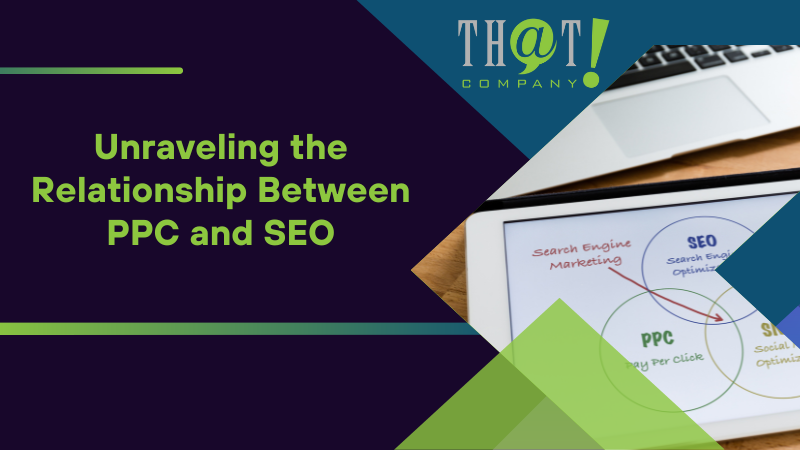
Unraveling the Relationship Between PPC and SEO
Just like our athletes, PPC and SEO are two distinct entities, each with its unique strengths. SEO is the stalwart player, enhancing a website’s visibility to gain organic traffic. It’s a long game strategy, taking months to climb the organic ranking ladder. Think of SEO as owning the traffic, providing long-term cost benefits.
On the other hand, PPC is the speedster, offering quick visibility results through paid advertising. It’s the renting of traffic, where advertisers pay for each ad click. It’s like renting traffic with ongoing costs. But here’s where it gets interesting. These two can indirectly influence each other. For instance, continuous PPC campaigns generate data that can be used to refine SEO strategies and align web pages and content with search engine rankings.
While SEO enhances your organic visibility and PPC improves your paid visibility, their combination can result in comprehensive brand exposure on search engine results pages. It’s like having the best of both worlds, with organic SEO providing more valuable long-term benefits and a successful PPC campaign offering immediate results.
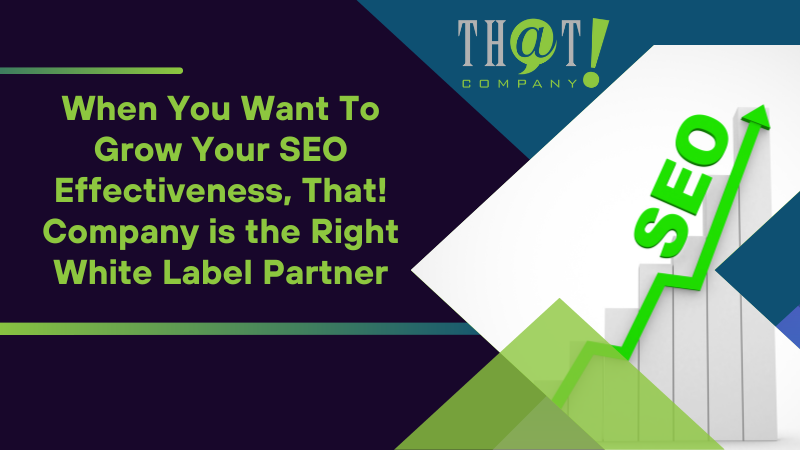
When You Want To Grow Your SEO Effectiveness, That! Company is the Right White Label Partner
Imagine a team that can take your digital marketing efforts to the next level. Enter That! Company, your trusted white label partnership. Offering a comprehensive range of services from SEO to PPC and social media, they’ve got you covered.
They not only provide services but also boost your sales performance by using elements from their white label pricing strategies. With a focus on valuing partner time, they take over time-consuming tasks, freeing up your time to focus on growing your client load. But that’s not all. They work under your brand, helping to improve your reputation and credibility in the market.
Understanding the Indirect Influences
So, in what ways does PPC indirectly influence SEO? Think of this: a well-placed ad increases site traffic, leading to greater exposure through media or social media coverage. It’s like a ripple effect, with the initial PPC campaign acting as the pebble thrown into the water.
A study by Adlucent found that paid search can indirectly boost organic search results by increasing brand familiarity. As users become more familiar with a brand through PPC, they are more likely to click and convert on organic search results. It’s like seeing a familiar face in a crowd. You’re more likely to gravitate towards it, right?
The Myth of Direct Influence
Now, here’s a common misconception: PPC campaigns directly impact organic search result rankings. But let’s set the record straight. PPC has no direct sway on organic search result rankings. While PPC can certainly increase website visibility and traffic, it doesn’t have the power to modify where a site ranks organically.
Think of the search engine results page as a party. PPC ads, including Google ads, are like VIP guests. They have a special section at the top of the results page. But regardless of how much they shine in their section, they can’t change the guest list in the organic listings section. They can, however, increase the overall visibility of your brand at the party with effective white label PPC management.
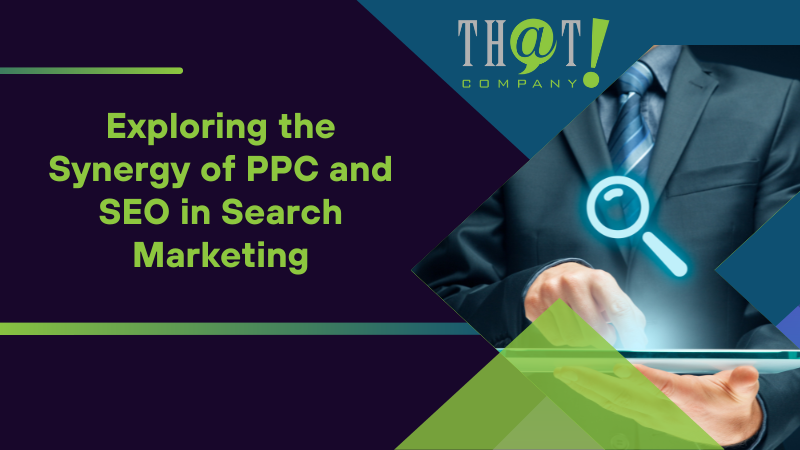
Exploring the Synergy of PPC and SEO in Search Marketing
Now, let’s concentrate on the collaborative efforts of PPC and SEO in creating a comprehensive best white label digital marketing strategy. When PPC and SEO share the field, they enhance visibility across different keyword categories, providing immediate exposure through PPC and building a long-term presence through SEO.
However, that’s not where the synergy stops. By coordinating PPC and SEO strategies, you create a more agile and scalable content strategy. This unified strategy effectively targets the right user personas, producing optimal results without duplicating efforts. It’s like having a well-coordinated team where each player knows their role, leading to a more successful game.
Shared Insights: Leveraging Keyword and Conversion Data
Insights derived from both PPC and SEO can significantly transform your marketing strategy. PPC campaigns provide access to keyword search volumes, competitor bidding, and high-converting calls-to-action, all of which can inform and improve your SEO strategy.
Imagine being able to refine your SEO approach based on PPC conversion data or identifying underperforming keywords from PPC data to improve your organic strategy. It’s like having a seasoned mentor guiding you in the right direction, helping you avoid pitfalls and capitalize on opportunities.
Enhancing Visibility Across SERPs
The combined use of PPC and SEO can dramatically increase your brand’s presence on search engine results pages. By appearing both in paid ads and organic rankings, you stand a chance of capturing the majority of clicks for targeted keywords.
Even when your website performs well in organic search results, PPC campaigns can still contribute additional traffic and revenue. This ensures a dominant presence on search engine results pages, helping your brand stand out among the competition.
It’s like having a well-lit billboard on a busy highway, catching the attention of many potential customers.
Coordinated Messaging for Brand Consistency
Brand consistency holds paramount importance in the realm of digital marketing. By aligning the messaging in your PPC ads and organic content, you can create a strong, cohesive brand identity.
Imagine a chorus singing in perfect harmony, each voice complementing the others to create a beautiful melody. That’s what happens when your PPC and SEO messages are aligned. Your brand becomes more compelling, and your audience is more likely to trust and engage with you.
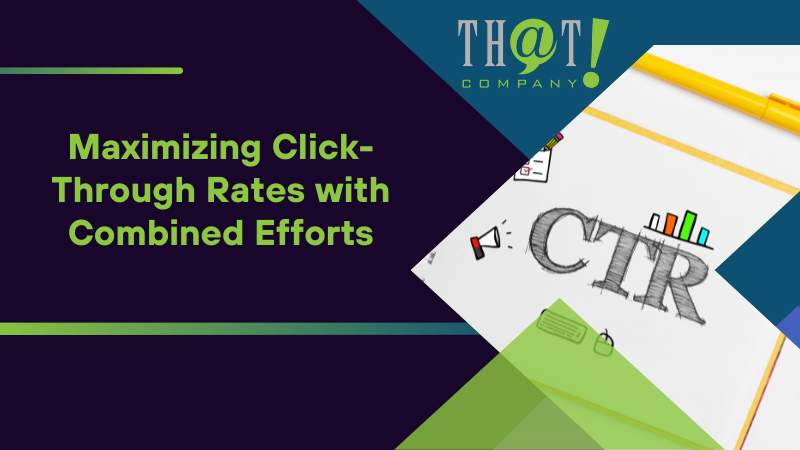
Maximizing Click-Through Rates with Combined Efforts
Now, let’s delve into how the integration of PPC and SEO can optimize click-through rates. When you increase brand awareness through PPC advertising, it can encourage more clicks on your organic listings as users become familiar with your brand. It’s like seeing a familiar product on the supermarket shelf. You’re more likely to pick it up, aren’t you?
In addition, remarketing PPC campaigns aimed at visitors who initially arrived through organic search can entice users back to your website with customized messaging. This improves the chance of conversion, turning those initial clicks into profitable actions.
Crafting Compelling Ad Copy and Meta Descriptions
Compelling ad copy and meta descriptions are crucial for engaging your audience. The right words can capture attention, stir emotions, and prompt action. It’s like crafting a captivating story that draws readers in and compels them to turn the page.
Incorporating compelling calls-to-action (CTAs) and special offers in your ad copy can motivate immediate audience interaction. It’s like giving your readers a compelling reason to stay and explore your world, boosting engagement and conversion rates for both PPC ads and organic search results.
Targeting High Performing Keywords in Both Channels
Focusing on high-performing keywords offers another way to boost click-through rates and draw pertinent traffic for both PPC and SEO. When you focus on keywords with high commercial intent, you’re likely to attract traffic that’s ready to convert. It’s like fishing in a pond full of hungry fish.
In addition, implementing negative keywords can help maintain high click-through rates by filtering out irrelevant ad impressions. It’s like setting up a filter that keeps your pond free of unwanted debris, ensuring that your hook only catches the right fish.
A/B Testing: Refining Your Approach
A/B testing can be likened to a crystal ball. It allows you to look into the future and see which version of your ad or landing page performs better. It’s a powerful tool for optimizing your campaigns, helping you refine your approach and maximize your results.
Remember, every element of your PPC campaign can be tested, from your ad copy to your landing pages. By iterating your language and variations, you can engage different user types and refine your ad’s overall performance. It’s like fine-tuning a musical instrument to play the perfect tune.
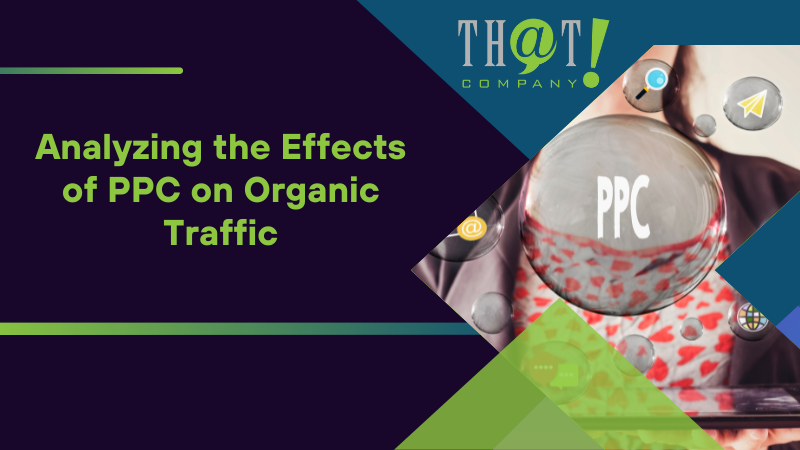
Analyzing the Effects of PPC on Organic Traffic
Let’s now examine how PPC campaigns can yield valuable insights for understanding organic traffic performance and informing SEO strategy adjustments. While PPC campaigns do not directly affect organic search rankings, they do have indirect influences.
For instance, a well-placed PPC ad can:
- Increase brand recognition, leading to higher organic click-through rates
- Act as a beacon that guides more traffic towards your site
- Make users more familiar with your brand, increasing the likelihood of them clicking on your organic listings.
Google Analytics: Interpreting the Data
Google Analytics serves as a compass, guiding you through your digital marketing journey. This powerful tool enables you to track and analyze the performance of your PPC campaigns, providing insights that can improve your SEO strategies.
By analyzing the performance of selected keywords and optimizing them for improvement, you can ensure that your SEO and PPC campaigns are working towards a common goal. It’s like having a roadmap that guides you to your destination, helping you make informed decisions along the way.
Landing Page Optimization for Dual Benefits
Your landing page serves as the welcoming mat to your website. A well-optimized landing page can boost your organic search rankings and increase your PPC conversion rates. To achieve this, your landing page content must be consistent with your ad copy, providing a coherent user experience.
Furthermore, monitoring the performance of selected keywords and optimizing them to match user search intent can significantly improve your landing page’s effectiveness. It’s like greeting your visitors with exactly what they came to find, increasing their satisfaction and boosting your conversions.
Local Searches and PPC: Boosting Local Business
Local searches function like a neighborhood bulletin board, linking local businesses with nearby customers. PPC campaigns can indirectly influence local search results by increasing brand visibility and acquiring backlinks.
For small and local businesses, running both SEO and PPC campaigns can boost brand awareness and visibility, making them stand out in their local market. It’s like shouting from the rooftops, letting everyone in the neighborhood know about your amazing products or services.
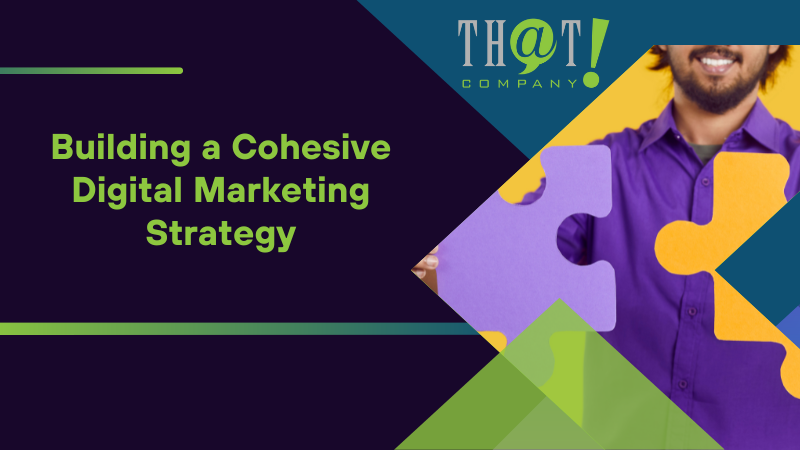
Building a Cohesive Digital Marketing Strategy
Consider the scenario where your PPC and SEO teams are not just two separate units, but a unified entity striving towards a shared goal. Integrating these teams within your organization can foster stronger communication, shared learning, and resilience, making your company less reliant on a single marketing channel.
It’s like having a well-coordinated orchestra where each instrument plays its part in creating a beautiful symphony. Instead of competing for the spotlight, PPC and SEO complement each other, resulting in a more effective and resilient marketing strategy.
Aligning Goals for SEO and PPC Campaigns
Synchronizing your SEO and PPC initiatives can notably enhance your digital marketing return on investment. By setting both short-term and long-term goals for your PPC campaigns, you can inform your SEO strategy and ensure it aligns with your overall business objectives.
It’s like setting a destination before you start your journey. You know exactly where you’re going, so you can plan the best route to get there. By aligning your goals, you can ensure that your PPC and SEO campaigns are working together to drive your business forward.
Technical SEO and PPC: Finding Common Ground
Technical SEO might appear as an alien language to those unacquainted with it. But once you understand it, you’ll find that its best practices can also improve your PPC campaign performance.
For example, an optimized landing page is crucial for both SEO and PPC campaigns. By improving website speed and enhancing user experience, you can contribute to higher quality scores in PPC, leading to higher positions at lower costs. It’s like polishing your vehicle to ensure a smooth and efficient journey.
Continuous Learning and Adaptation
In the ever-evolving landscape of digital marketing, change is the only constant. Search engine algorithms are frequently updated, requiring continuous education on the latest strategies and techniques to stay competitive in white label search engine optimization (SEO). As search engines play a crucial role in driving organic traffic, it’s essential to adapt to these changes and stay ahead of the curve.
Similarly, SEO and PPC advisers need to stay informed on the latest strategies, as the digital marketing landscape is dynamic, and previously effective tactics can quickly become obsolete. It’s like being a lifelong student, continually learning and adapting to stay ahead of the curve.
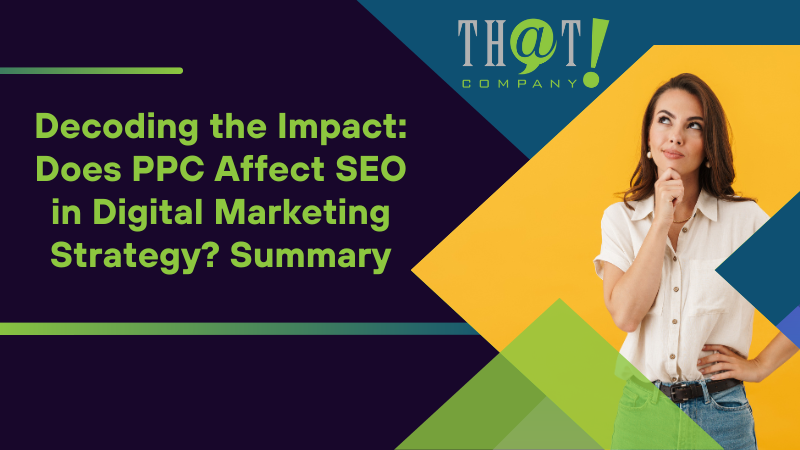
Summary
In conclusion, PPC and SEO are not rivals, but teammates. When coordinated effectively, they can create a powerful, unified digital marketing strategy that maximizes visibility, improves cost efficiency, and fosters a deeper understanding of your target audience. By sharing insights, enhancing visibility, and aligning goals, you can unlock the full potential of these two marketing strategies and drive your business growth. Remember, the key to success lies in continuous learning and adaptation. So, keep learning, keep adapting, and let the synergy of PPC and SEO take your digital marketing game to the next level!
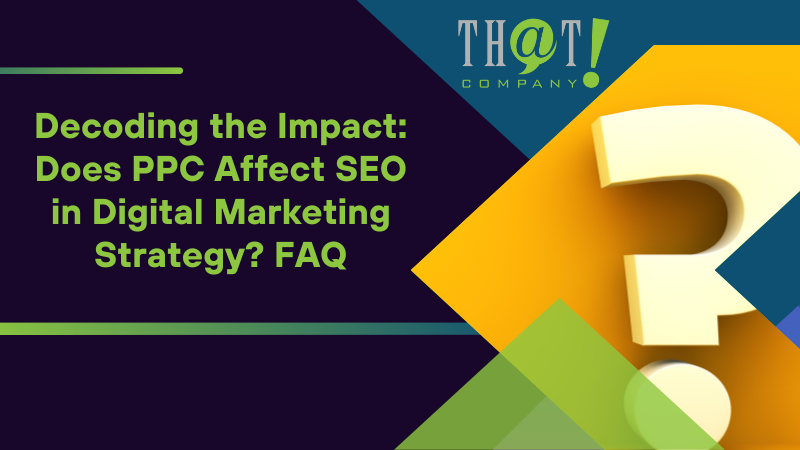
Frequently Asked Questions
Should SEO and PPC be used together?
Yes, using both SEO and PPC together can lead to more click volume and increased brand awareness, making them a phenomenal combination for a comprehensive marketing strategy.
Which is harder SEO or PPC?
In conclusion, while PPC can provide quicker and more predictable results, it also requires effective campaign management and can be costly. On the other hand, SEO is a long-term strategy that demands more time, effort, and ongoing dedication.
How can I stay competitive in SEO?
To stay competitive in SEO, continuously educate yourself on the latest strategies and techniques as the digital marketing landscape is dynamic and tactics can quickly become obsolete.

